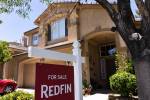When using builder’s preferred lenders, ask the right questions
Southern Nevada home builders have been offering a range of incentives and promotions to lure home buyers to their new-home developments.
Some -- but not all -- of these incentives are tied to the buyer's use of a builder's preferred mortgage lender who is contracted by the builder or in some cases an in-house firm.
The use of incentives tied to a preferred lender offers advantages to both the borrower and builder.
The borrower gets something extra with their home purchase, ranging from the inclusion of a built-in microwave to offers worth up to $100,000 in a high-end development.
Among the benefits to the builder is increased communication of the status of a mortgage application, a notification of potential problems and a clearer understanding of when the mortgage and home purchase may be finalized.
As with any potential mortgage, home buyers should take the time to carefully review the terms of a proposed mortgage package and the associated costs provided in an upfront good faith estimate.
The Federal Reserve Board offers the following tips to consumers choosing a lender and mortgage:
-- Interest rate. Ask the lender for its current mortgage interest rates and whether the rate is fixed or adjustable. Keep in mind that when interest rates for adjustable-rate loans go up, generally so does the monthly payment.
If the rate quoted is for an adjustable-rate loan, ask how the rate and loan payment will vary, including whether the loan payment will be reduced when rates go down.
-- Annual Percentage Rate. The APR takes into account not only the interest rate but also points, broker fees and other charges that the borrower may be required to pay.
-- Points. Points are fees paid to the lender or broker for the loan and are often linked to the interest rate; usually the more points paid, the lower the rate. Ask for points to be quoted as a dollar amount rather than just as the number of points.
-- Fees. A home loan often involves many fees, such as loan origination or underwriting fees; broker fees; and transaction, settlement and closing costs. Every lender or broker should be able to give an estimate of its fees.
-- Down Payments and Private Mortgage Insurance. If a 20 percent down payment is not made, lenders usually require the home buyer to purchase private mortgage insurance to protect the lender in case the home buyer fails to pay.
When government-assisted programs such as Federal Housing Administration, Veterans Affairs or Rural Development Services are available, the down payment requirements may be smaller.
If it is required, ask for the PMI's total cost and the total monthly payment with it included.
Most experts agree that as a general rule fees outside of the loan origination and discount costs should not equal more than $1,000.
Another consideration goes beyond money: the convenience factor of working with a lender who has a pre-established working relationship with the builder and sometimes will meet with buyers in the builder's sales offices.
For more consumer mortgage information, review the Federal Reserve Board consumer guide at www.federalreserve.gov/consumerinfo/mortgages.htm.























